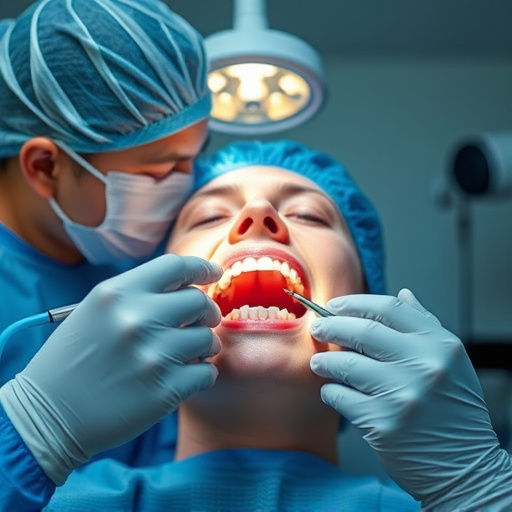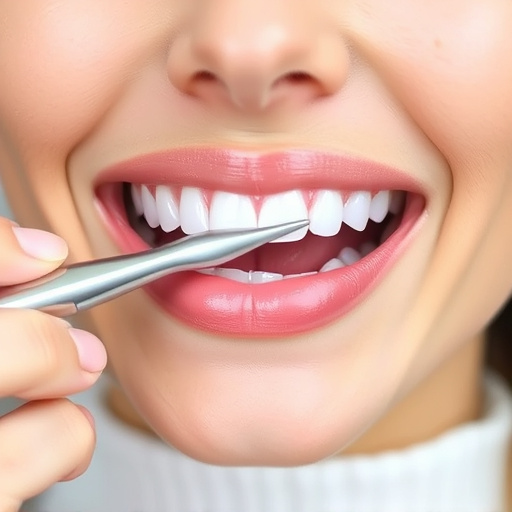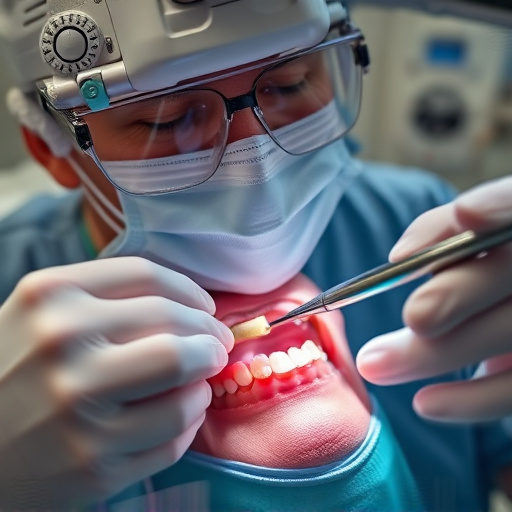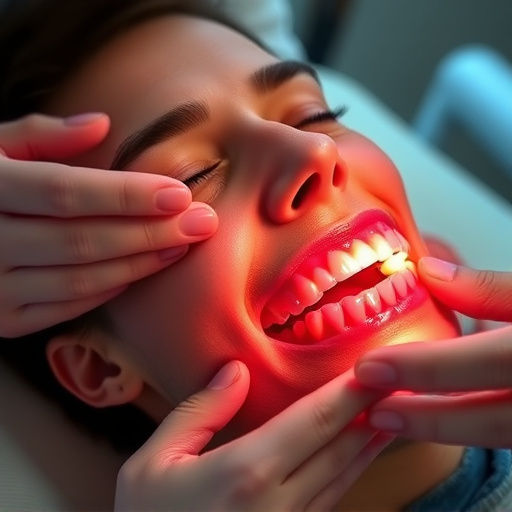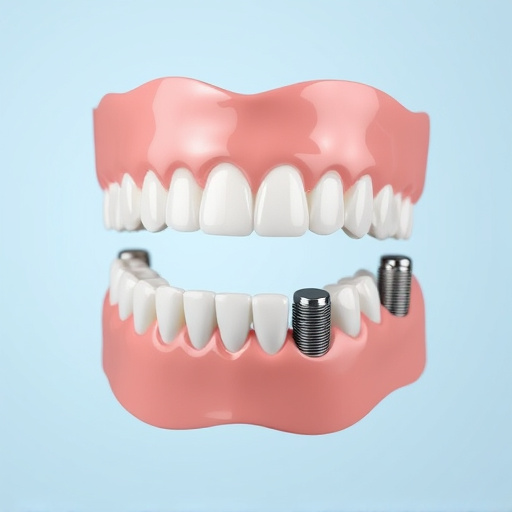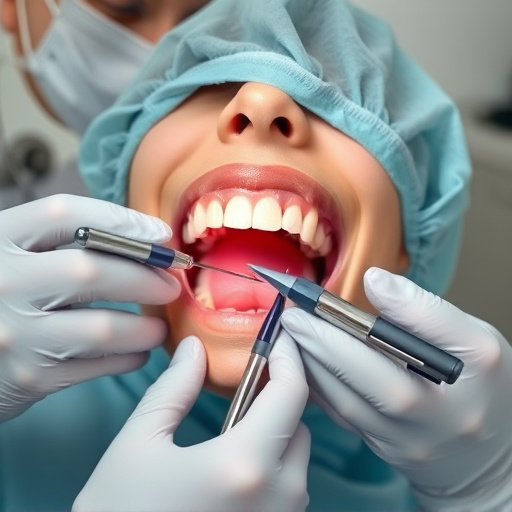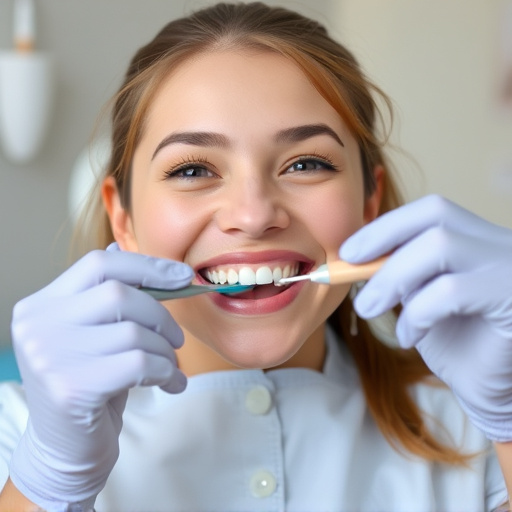Oral cancer screening is a crucial aspect of preventive healthcare, as it detects early signs of potential oral cancer risks while also providing insights into general health. Regular screenings, often integrated into dental check-ups, allow dentists to identify pre-cancerous lesions and offer benefits like increased treatment success rates and less invasive options. Key risk factors include age, smoking, alcohol consumption, and a compromised immune system; early detection is paramount for high-risk patients. Combining oral cancer screening with strategies like quitting smoking and balanced diet promotes proactive preventive dentistry, enhancing both oral health and overall well-being.
Oral cancer screening isn’t just about checking for mouth lesions; it’s a gateway to understanding your overall health. Uncovering the connection between oral cancer and systemic conditions can reveal hidden risk factors and provide valuable insights. Early detection through regular screenings plays a pivotal role in improving outcomes, as it allows for timely intervention and treatment. This article explores the benefits of oral cancer screening, delves into the relationship with systemic health, and offers strategies to mitigate risks, ensuring a comprehensive look at this vital practice.
- Uncovering the Connection: Oral Cancer and Systemic Health
- The Benefits of Early Detection through Screening
- Navigating Risk Factors and Prevention Strategies
Uncovering the Connection: Oral Cancer and Systemic Health
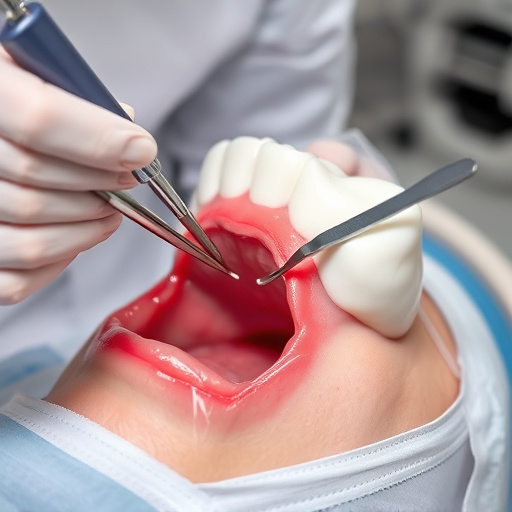
Oral cancer screening isn’t just about identifying potential mouth issues; it serves as a gateway to understanding your overall health. Uncovering the connection between oral cancer and systemic health is a significant development in preventive care. Research has shown that various systemic diseases can manifest symptoms in the mouth, making it a mirror reflecting the body’s internal state. For instance, conditions like diabetes, HIV/AIDS, and even cardiovascular diseases can influence the health of your mouth.
Regular oral cancer screenings, often incorporated into routine dental check-ups, allow dentists to detect changes at an early stage. This proactive approach enables the identification of pre-cancerous lesions or abnormal cells that may indicate a higher risk of developing cancer systemically. Moreover, since oral cancer screenings are non-invasive and efficient, they can provide valuable insights into your general well-being, encouraging you to address any underlying health issues and promoting better overall health, including considerations for children’s dentistry, dental implants, and cosmetic fillings as part of comprehensive care.
The Benefits of Early Detection through Screening
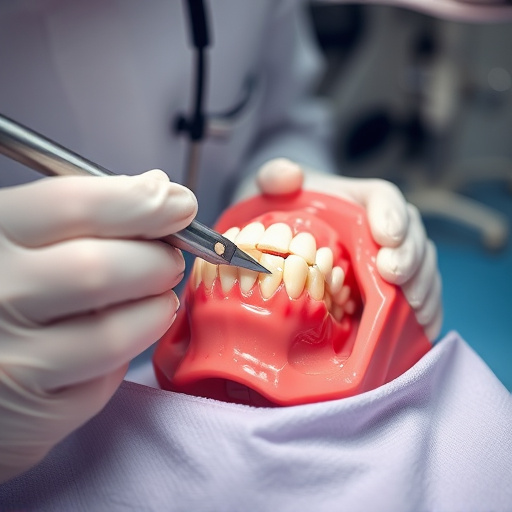
Early detection is a cornerstone of successful treatment for any cancer, and oral cancer is no exception. Regular oral cancer screenings play a vital role in maintaining your overall health by providing insights into potential health issues that may otherwise go unnoticed. Through simple, non-invasive procedures like visual exams and specialized tests, these screenings can detect early signs of oral cancer, including abnormal growths or lesions.
Catching oral cancer in its earliest stages offers numerous advantages. It increases the likelihood of successful treatment and improves prognosis significantly. Moreover, it allows for less invasive treatment options and preserves natural teeth, often a priority for patients also seeking cosmetic dentistry. Regular routine oral exams contribute to proactive healthcare by enabling dental professionals to track changes in your mouth over time, ensuring that any anomalies are promptly addressed. This holistic approach, combining oral cancer screening with routine care like dental implants, empowers individuals to take charge of their health and maintain a high quality of life.
Navigating Risk Factors and Prevention Strategies
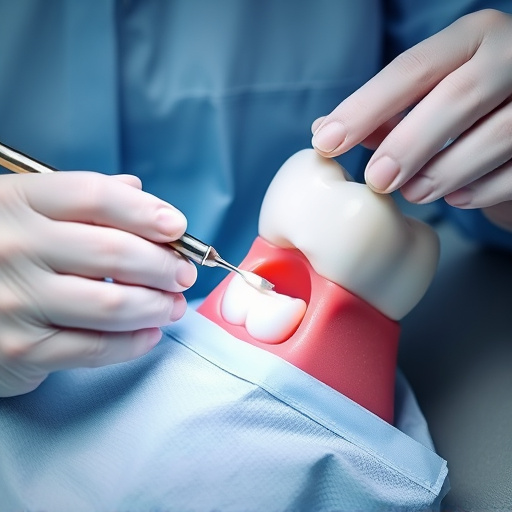
Navigating risk factors is a critical aspect of oral cancer screening, enabling dental professionals to identify individuals who might be more susceptible to the disease. Factors like age, smoking, excessive alcohol consumption, and a weakened immune system are well-documented contributors to oral cancer development. Early detection through regular screenings becomes even more vital for those in high-risk categories, allowing for prompt intervention and treatment.
Prevention strategies are another key focus area during oral cancer screening. Promoting healthy habits such as quitting smoking, reducing alcohol intake, maintaining a balanced diet rich in fruits and vegetables, and regularly practicing good oral hygiene can significantly lower the risk. Additionally, educating patients on the importance of regular dental check-ups and screenings contributes to proactive preventive dentistry, ensuring not just oral health but also providing insights into overall well-being.
Oral cancer screening isn’t just about detecting potential issues in your mouth; it’s a gateway to understanding your overall health. By uncovering connections between oral health and systemic conditions, early detection through screenings can lead to better outcomes and informed prevention strategies. Embracing these insights empowers individuals to take proactive steps toward maintaining both oral cancer-free and overall healthily lives. Regular check-ups play a vital role in this journey, allowing for timely interventions and peace of mind.

